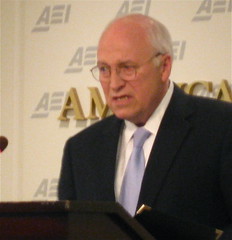UN Torture Expert to Report on Bradley Manning Detention
A UN expert says he’s had “productive conversations” with American officials about the detention of Bradley Manning, but would not say if the conditions of that detention violated international standards.
UN Special rapporteur on torture Juan Mendez says he will be releasing a report on Manning’s detention in the coming weeks.
“On the one hand he is no longer in solitary confinement, although he spent something like eight months in solitary confinement. But when he was moved to Fort Leavenworth his regime changed.” Mendez told reporters today. “On a daily basis he does communicate and socialize with other inmates in his same category which is a big improvement over the first 8 months.”
Mendez says he is following developments in the case closely, despite being refused a confidential meeting with the alleged Wikileaks source. He said the US Defense Department agreed to let him visit Manning but would not guarantee the conversation would be private.
“Under the rules of the Special Rapporteur and the rules of all the special procedures, that is a condition that we cannot accept.” he said. “I nevertheless told Mr. Manning through his council that if he still wanted to see me I would make an exception, but he also chose not to waive his right to have a private conversation with me.”
Mendez was at the UN to present a report calling on states to end the use of solitary confinement as a punitive measure or prison management technique. He says solitary confinement is permissible in some instances, such as for protective reasons or other short term specific purposes, but is otherwise a inhuman punishment. He also said instances of pre-trial solitary confinement were especially of concern.
“Its used mostly as a way to extort confessions or information leading to the prosecution of others. If this is used to coerce the will of a person in detention it can amount, depending on the severity, to either cruel and degrading treatment or to torture itself.”





 Tuesday, October 18, 2011 at 9:48PM
Tuesday, October 18, 2011 at 9:48PM


Somali Torture Victims Try To Overcome Prime Minister's Immunity Claim
The FSIA says that foreign governments cannot be sued in US courts (with the exception of countries listed by the State Department as state sponsors of terrorism), and Samatar's argument is that, while the statute's terms don't protect government officials from suit, the law would be ineffective if a plaintiff could sue the top officials in that government. The rationale behind the immunity is that US courts should not pass judgment on foreign governments, but that immunity would be worthless if foreign government officials could be threatened with lawsuits over official acts they carried out in their home country.
Justice Stephen Breyer seemed the most receptive to this argument in court today, at one point telling Yousuf's lawyer that if the law doesn't protect officials, "this act is only good as against the bad lawyer." Any clever lawyer, Breyer said, would just sue the officials directly.
The lawyers for the Somalis argued that there were still teeth in FSIA, even if it does not protect officials individually, since any suit that asked for a change in government policy, return of land, or other remedies against a foreign government would be thrown out under FSIA. Further, some actions taken by government officials would still be protected under common-law immunity principles.
The argument that seemed to gain the most support, though, was based on the Torture Victim Protection Act (TVPA), passed by Congress in 1991. If government officials have immunity, and the TVPA did not change that, then the TVPA served no purpose, several Justices suggested. Lawyers for the Somalis replied that, in some cases, governments waive immunity protection for their officials, so torture prosecutions can proceed.
Overall, the stance of the Justices was unclear, since they were faced with seemingly contradictory statutory language. The case, Samantar v. Yousuf, will be decided by this summer.